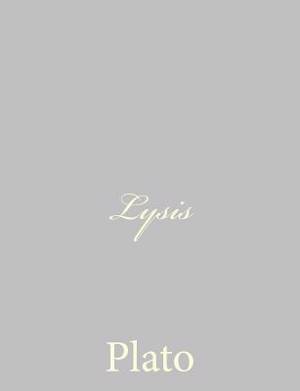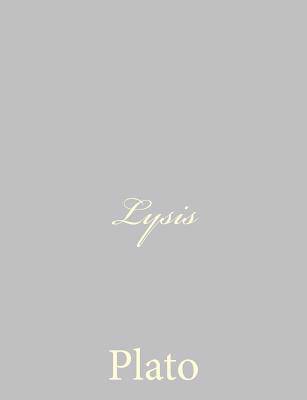
- Afhalen na 1 uur in een winkel met voorraad
- Gratis thuislevering in België vanaf € 30
- Ruim aanbod met 7 miljoen producten
- Afhalen na 1 uur in een winkel met voorraad
- Gratis thuislevering in België vanaf € 30
- Ruim aanbod met 7 miljoen producten
Zoeken
Omschrijving
Lysis By Plato Greek Classics Translated by Benjamin Jowett Lysis is a dialogue of Plato which discusses the nature of friendship. It is generally classified as an early dialogue. The main characters are Socrates, the boys Lysis and Menexenus who are friends, as well as Hippothales, who is in unrequited love with Lysis and therefore, after the initial conversation, hides himself behind the surrounding listeners. Socrates proposes four possible notions regarding the true nature of friendship: Friendship between people who are similar, interpreted by Socrates as friendship between good men. Friendship between men who are dissimilar. Friendship between men who are neither good nor bad and good men. Gradually emerging: friendship between those who are relatives, not kindred, by the nature of their souls. Of all those options, Socrates thinks that the only logical possibility is the friendship between men who are good and men who are neither good nor bad. In the end, Socrates seems to discard all these ideas as wrong, although his para-logical refutations have strong hints of irony about them.
Specificaties
Betrokkenen
- Auteur(s):
- Vertaler(s):
- Uitgeverij:
Inhoud
- Aantal bladzijden:
- 48
- Taal:
- Engels
Eigenschappen
- Productcode (EAN):
- 9781490536491
- Verschijningsdatum:
- 27/06/2013
- Uitvoering:
- Paperback
- Formaat:
- Trade paperback (VS)
- Afmetingen:
- 189 mm x 246 mm
- Gewicht:
- 104 g

Alleen bij Standaard Boekhandel
+ 27 punten op je klantenkaart van Standaard Boekhandel
Beoordelingen
We publiceren alleen reviews die voldoen aan de voorwaarden voor reviews. Bekijk onze voorwaarden voor reviews.








